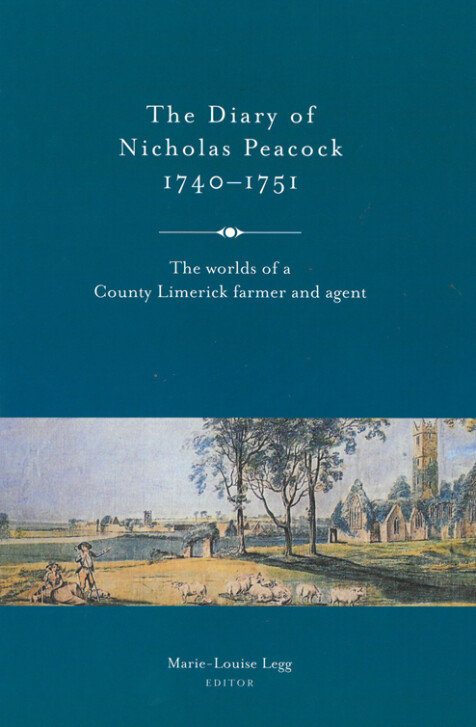The diary of Nicholas Peacock, 1740–51
The worlds of a County Limerick farmer and agent
Marie-Louise Legg
‘… this is a welcome publication; it is sure to become a standard source on provincial life in Ireland in the mid-eighteenth century',James Kelly, Irish Economic & Social History.
‘Marie-Louise Legg has made a very significant contribution to Irish social history ... The diary of Nicholas Peacock is a treasure trove of detail on one eighteenth-century Irish life, and Legg’s work is likely to be of great use to other historians for a long time. Editors of diaries and other primary sources must allow the source to speak for itself and yet, at the same time, make it accessible to the reader and provide enough contextual commentary to allow the non-expert to comprehend its full significance. Legg has done an excellent job on both counts … Legg’s transcription of the diary is a valuable addition to Irish sources in print … and will be an important resource for students of eighteenth-century rural Ireland for a long time to come’, Daniel Gahan, Irish Studies Review (2006).
'This is an extremely valuable and rare source for the historian of the economic, cultural and social history of the rural middling sort ... Dr Legg’s careful editing of the document is accurate, succinct and helpful. Importantly, she has maintained the document’s original spelling and grammar, which provides clues for interpreting the phonetic characteristics of speech in that part of Limerick in the eighteenth century', David Fleming, Irish Historical Studies.
'This edition of Peacock’s diary merits careful reading by historians interested in the rural economy and rural life in this period, and extends our understanding of both by some measure', H.R. French, Agricultural History review.
‘Very little is known about the vast majority of the estimated 400,000 Protestants living in Ireland in the eighteenth century. Apart from the aristocrats and politicians, as few as 20,000 can be even identified, mostly freemen of the boroughs or freeholders in the countryside. The survival of a short diary kept by a County Limerick protestant farmer and land agent, between 1740 and 1751 is therefore of great interest, allowing a window, or at least a pane or two, through which to glimpse this dimly lit world … Its wider availability, through the painstaking and expert editing by Marie-Louise Legg, will provide historians with a valuable source for examining rural social and economic life in mid-eighteenth-century Ireland’, Liam Irwin, Eighteenth-Century Ireland (2006).
‘The editing of the diary has made available to a wider audience a fascinating source for day to day life in eighteenth-century West Limerick ... [I]t is ... a very valuable resource’, Liam Irwin, North Munster Antiquarian Journal.

